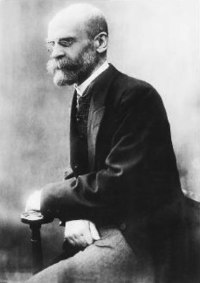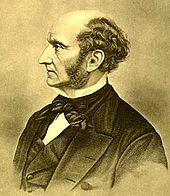
A | B | C | D | E | F | G | H | CH | I | J | K | L | M | N | O | P | Q | R | S | T | U | V | W | X | Y | Z | 0 | 1 | 2 | 3 | 4 | 5 | 6 | 7 | 8 | 9
This article is missing information about criticism of corporatism, strengths and weaknesses. (December 2018) |

| Corporatism |
|---|
Corporatism is a political system of interest representation and policymaking whereby corporate groups, such as agricultural, labour, military, business, scientific, or guild associations, come together on and negotiate contracts or policy (collective bargaining) on the basis of their common interests.[1][2][3] The term is derived from the Latin corpus, or "body".
Corporatism does not refer to a political system dominated by large business interests, even though the latter are commonly referred to as "corporations" in modern American vernacular and legal parlance; instead, the correct term for this theoretical system would be corporatocracy. Corporatism is not government corruption in politics or the use of bribery by corporate interest groups. The terms 'corporatocracy' and 'corporatism' are often confused due to their name and the use of corporations as organs of the state.
Corporatism developed during the 1850s in response to the rise of classical liberalism and Marxism, as it advocated cooperation between the classes instead of class conflict. Adherents of diverse ideologies, including fascism, communism, socialism, and liberalism have advocated for corporatist models.[1] Corporatism became one of the main tenets of fascism, and Benito Mussolini's fascist regime in Italy advocated the total integration of divergent interests into the state for the common good;[4] however, the more democratic neo-corporatism often embraced tripartism.[5][6]
Corporatist ideas have been expressed since ancient Greek and Roman societies, with integration into Catholic social teaching and Christian democratic political parties. They have been paired by various advocates and implemented in various societies with a wide variety of political systems, including authoritarianism, absolutism, fascism, liberalism, and social democracy.[7][8]
Kinship corporatism
Kinship-based corporatism emphasizing clan, ethnic and family identification has been a common phenomenon in Africa, Asia and Latin America. Confucian societies based upon families and clans in East Asia and Southeast Asia have been considered types of corporatism. China has strong elements of clan corporatism in its society involving legal norms concerning family relations.[9][self-published source?] Islamic societies often feature strong clans which form the basis for a community-based corporatist society.[10] Family businesses are common worldwide in capitalist societies.
Politics and political economy

| Part of a series on |
| Economic systems |
|---|
|
Major types
|
| Part of a series on |
| State monopoly capitalism |
|---|
| Terms |
| Ideas |
| Theory |
| Issues |
| Ideologies |
| See also |
Communitarian corporatism
Early concepts of corporatism evolved in Classical Greece. Plato developed the concept of a totalitarian and communitarian corporatist system of natural-based classes and natural social hierarchies that would be organized based on function, such that groups would cooperate to achieve social harmony by emphasizing collective interests while rejecting individual interests.[11]
In Politics, Aristotle described society as being divided between natural classes and functional purposes: those of priests, rulers, slaves and warriors.[12] Ancient Rome adopted Greek concepts of corporatism into its own version of corporatism, adding the concept of political representation on the basis of function that divided representatives into military, professional and religious groups and set up institutions for each group known as collegia.[12]
After the 5th-century fall of Rome and the beginning of the Early Middle Ages, corporatist organizations in western Europe became largely limited to religious orders and to the idea of Christian brotherhood — especially within the context of economic transactions.[13] From the High Middle Ages onward, corporatist organizations became increasingly common in Europe, including such groups as religious orders, monasteries, fraternities, military orders such as the Knights Templar and the Teutonic Order, educational organizations such as the emerging universities and learned societies, the chartered towns and cities, and most notably the guild system which dominated the economies of population centers in Europe.[13] The military orders notably gained prominence during the period of the Crusades. These corporatist systems co-existed with the governing medieval estates system, and members of the first estate (the clergy), the second estate (the aristocracy) and third estate (the common people) could also participate in various corporatist bodies.[13] The development of the guild system involved the guilds gaining the power to regulate trade and prices, and guild members included artisans, tradesmen, and other professionals. This diffusion of power is an important aspect of corporatist economic models of economic management and class collaboration. However, from the 16th century onward, absolute monarchies began to conflict with the diffuse, decentralized powers of the medieval corporatist bodies.[13] Absolute monarchies during the Renaissance and Enlightenment gradually subordinated corporatist systems and corporate groups to the authority of centralized and absolutist governments, removing any checks on royal power these corporatist bodies had previously utilized.[14]
After the outbreak of the French Revolution (1789), the existing absolutist corporatist system in France was abolished due to its endorsement of social hierarchy and special "corporate privilege". The new French government considered corporatism's emphasis on group rights as inconsistent with the government's promotion of individual rights. Subsequently, corporatist systems and corporate privilege throughout Europe were abolished in response to the French Revolution.[14] From 1789 to the 1850s, most supporters of corporatism were reactionaries.[15] A number of reactionary corporatists favoured corporatism in order to end liberal capitalism and to restore the feudal system.[16] Countering the reactionaries were the ideas of Henri de Saint-Simon (1760- 1825), whose proposed "industrial class" would have had the representatives of various economic groups sit in the political chambers, in contrast to the popular representation of liberal democracy.[17]
Progressive corporatism
From the 1850s onward, progressive corporatism developed in response to classical liberalism and to Marxism.[15] Progressive corporatists supported providing group rights to members of the middle classes and working classes in order to secure co-operation among the classes. This was in opposition to the Marxist conception of class conflict. By the 1870s and 1880s, corporatism experienced a revival in Europe with the formation of workers' unions that were committed to negotiations with employers.[15]
In his 1887 work Gemeinschaft und Gesellschaft ("Community and Society"), Ferdinand Tönnies began a major revival of corporatist philosophy associated with the development of neo-medievalism, increasing promotion of guild socialism and causing major changes to theoretical sociology. Tönnies claims that organic communities based upon clans, communes, families and professional groups are disrupted by the mechanical society of economic classes imposed by capitalism.[18] The German Nazi Party used Tönnies' theory to promote their notion of Volksgemeinschaft ("people's community").[19] However, Tönnies opposed Nazism: he joined the Social Democratic Party of Germany in 1932 to oppose fascism in Germany and was deprived of his honorary professorship by Adolf Hitler in 1933.[20]
Corporatism in the Roman Catholic Church
| Part of a series on |
| Integralism |
|---|
 |
In 1881, Pope Leo XIII commissioned theologians and social thinkers to study corporatism and to provide a definition for it. In 1884 in Freiburg, the commission declared that corporatism was a "system of social organization that has at its base the grouping of men according to the community of their natural interests and social functions, and as true and proper organs of the state they direct and coordinate labor and capital in matters of common interest".[21] Corporatism is related to the sociological concept of structural functionalism.[11][10][22][23]
Corporatism's popularity increased in the late 19th century and a corporatist internationale was formed in 1890, followed by the 1891 publishing of Rerum novarum by the Catholic Church that for the first time declared the Church's blessing to trade unions and recommended that politicians recognize organized labour.[24] Many corporatist unions in Europe were endorsed by the Catholic Church to challenge the anarchist, Marxist and other radical unions, with the corporatist unions being fairly conservative in comparison to their radical rivals.[25] Some Catholic corporatist states include Austria under the 1932–1934 leadership of Federal Chancellor Engelbert Dollfuss and Ecuador under the leadership of García Moreno (1861–1865 and 1869–1875). The economic vision outlined in Rerum novarum and Quadragesimo anno (1931) also influenced the régime (1946–1955 and 1973–1974) of Juan Perón and Justicialism in Argentina and influenced the drafting of the 1937 Constitution of Ireland.[26][27][28] In response to the Roman Catholic corporatism of the 1890s, Protestant corporatism developed, especially in Germany, the Netherlands and Scandinavia.[29] However, Protestant corporatism has been much less successful in obtaining assistance from governments than its Roman Catholic counterpart.[30]
Corporate solidarism

Sociologist Émile Durkheim (1858-1917) advocated a form of corporatism termed "solidarism" that advocated creating an organic social solidarity of society through functional representation.[31] Solidarism built on Durkheim's view that the dynamic of human society as a collective is distinct from the dynamic of an individual, in that society is what places upon individuals their cultural and social attributes.[32]
Durkheim posited that solidarism would alter the division of labour by evolving it from mechanical solidarity to organic solidarity. He believed that the existing industrial capitalist division of labour caused "juridical and moral anomie", which had no norms or agreed procedures to resolve conflicts and resulted in chronic confrontation between employers and trade unions.[31] Durkheim believed that this anomie caused social dislocation and felt that by this "it is the law of the strongest which rules, and there is inevitably a chronic state of war, latent or acute".[31] As a result, Durkheim believed it is a moral obligation of the members of society to end this situation by creating a moral organic solidarity based upon professions as organized into a single public institution.[33]
Corporate solidarism is a form of corporatism that advocates creating solidarity instead of collectivism in society through functional representation, believing that it is up to the people to end the chronic confrontation between employers and labor unions by creating a single public institution. Solidarism rejects a materialistic approach to social, economic, and political problems, while also rejecting class conflict. Just like corporatism, it embraces tripartism as its economic system.
Liberal corporatism

John Stuart Mill discussed corporatist-like economic associations as needing to "predominate" in society to create equality for labourers and to give them influence with management by economic democracy.[34] Unlike some other types of corporatism, liberal corporatism does not reject capitalism or individualism, but believes that capitalist companies are social institutions that should require their managers to do more than maximize net income by recognizing the needs of their employees.[35]
This liberal corporatist ethic is similar to Taylorism but endorses democratization of capitalist companies. Liberal corporatists believe that inclusion of all members in the election of management in effect reconciles "ethics and efficiency, freedom and order, liberty and rationality".[35]
Liberal corporatism began to gain disciples in the United States during the late 19th century.[15] Economic liberal corporatism involving capital-labour cooperation was influential in Fordism.[16] Liberal corporatism has also been an influential component of the liberalism in the United States that has been referred to as "interest group liberalism".[36]
Fascist corporatism
| Part of a series on |
| Fascism |
|---|
 |
